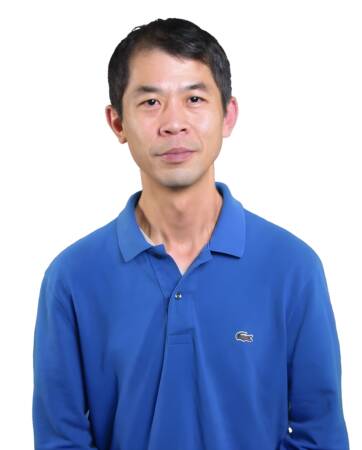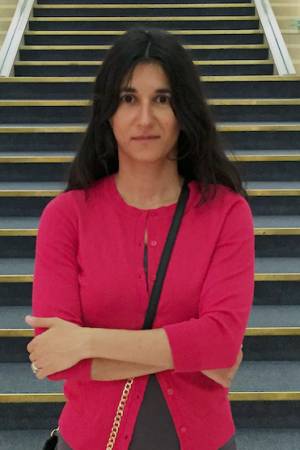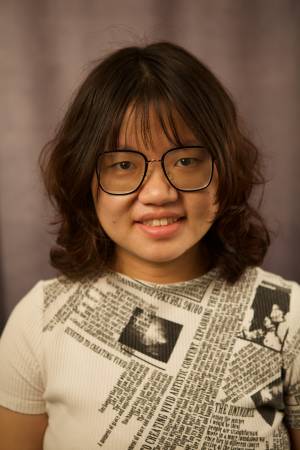Low-Cost Multimodal Sensing and Dexterity for Deformable Object Manipulation
Abstract: To integrate robots seamlessly into daily life, they must be able to handle a variety of tasks in diverse environments, like cooking in restaurants or tidying up around the house. Many of the items in these environments are deformable such as fruits or bed sheets and a certain level of dexterity is necessary to [...]
Towards Spatial Intelligence for Behaviors and Environments
Abstract: We are in an era of foundation models and spatial intelligence (AR/VR). Despite significant advancements in natural language processing for reasoning, other modalities like vision lag behind, offering limited contributions: current video-language models (VLMs) struggle even with basic spatial reasoning tasks. The challenge lies in the disparate training needs of different modalities. To enhance [...]
Developing Physically Capable and Intelligent Robots
Abstract: Dr. Rizzi will provide an overview of the ongoing work at the Robotics and AI Institute (RAI Institute) and its ongoing research efforts focused on the design and control of the next generation of intelligent and capable robotics systems. The focus is on the development of systems capable of performing complex dynamic tasks at [...]
Discovering and Erasing Undesired Concepts
Abstract: The rapid growth of generative models allows an ever-increasing variety of capabilities. Yet, these models may also produce undesired content such as unsafe or misleading images, private information, or copyrighted material. In this talk, I will discuss practical methods to prevent undesired generations. First, I will show how the challenge of avoiding undesired generations [...]
Mass-Constrained Robotic Climbing on Irregular Terrain
Abstract: Climbing robots can operate in steep and unstructured environments that are inaccessible to other ground robots, with applications ranging from the inspection of artificial structures on Earth to the exploration of natural terrain features throughout the solar system. Climbing robots for planetary exploration face many challenges to deployment, including mass restrictions, irregular surface features, [...]
Towards Annotation-Free Visual-Geometric Representations and Learning for Navigation in Unstructured Environments
Abstract: Navigation in unstructured environments is a capability critical to many robotics applications such as forestry, construction, disaster response and defense. In these domains, robots have the potential to eliminate much of the dull, dirty and/or dangerous work that is currently performed by humans. Unfortunately, these environments pose a unique set of challenges for navigation [...]
RI Faculty Business Meeting
Meeting for RI Faculty. Agenda was sent via a calendar invite.
Creative Tools: In Press, In Submission, and In Progress
Abstract: It's been a while since I've had a chance to show the rest of the RI what I and my various collaborators have been working on. So this talk will be an informal and rapid-fire tour through some of the freshest results from my lab, including work that is in press, in submission, and in [...]
Stabilizing Reinforcement Learning in Differentiable Multiphysics Simulation
Abstract: Recent advances in GPU-based parallel simulation have enabled practitioners to collect large amounts of data and train complex control policies using deep reinforcement learning (RL), on commodity GPUs. However, such successes for RL in robotics have been limited to tasks sufficiently simulated by fast rigid-body dynamics. Simulation techniques for soft bodies are comparatively several [...]
Is Data All You Need?: Large Robot Action Models and Good Old Fashioned Engineering
Abstract: Enthusiasm has been skyrocketing for humanoids based on recent advances in "end-to-end" large robot action models. Initial results are promising, and several collaborative efforts are underway to collect the needed demonstration data. But is data really all you need? Although end-to-end Large Vision, Language, Action (VLA) Models have potential to generalize and reliably solve [...]
Informative Path Planning Toward Autonomous Real-World Applications
Abstract: Gathering information from the physical world is critical for applications such as scientific research, environmental monitoring, search and rescue, defense, and disaster response. Autonomous robots provide significant advantages for information gathering, particularly in situations where human access is constrained, hazardous, or impractical. By leveraging intelligent algorithms, these robots can efficiently collect data, enhancing decision-making [...]
The New Era of Video Generation
Abstract: Traditional video production is slow, expensive, and requires specialized skills. Founded by CMU alumni, HeyGen is an AI-native video platform designed to revolutionize the video creation process by making visual storytelling accessible to all. We've successfully grown to more than 20M users, and tens of millions revenue in less than one year, with recognition [...]
Robot Safety Beyond Collision-Avoidance
Abstract: It is common to equate robot safety with “collision avoidance”, but in unstructured open-world environments, a robot’s representation of safety should be much more nuanced. For example, the household manipulator should understand that pouring coffee too fast will cause the liquid to overflow or pulling a mug too quickly from a cupboard will cause [...]
Sensing the Unseen: Dexterous Tool Manipulation Through Touch and Vision
Abstract: Dexterous tool manipulation is a dance between tool motion, deformation, and force transmission choreographed by the robot's end-effector. Take for example the use of a spatula. How should the robot reason jointly over the tool’s geometry and forces imparted to the environment through vision and touch? In this talk, I will present our recent [...]
Autoregressive Models: Foundations and Open Questions
Abstract: The success of Autoregressive (AR) models in language today is so tremendous that their scope has, in turn, been largely narrowed to specific instantiations. In this talk, we will revisit the foundations of classical AR models, discussing essential concepts that may have been overlooked in modern practice. We will then introduce our recent research [...]
Carnegie Mellon University
Enabling Collaboration between Creators and Generative Models
Abstract: Generative models have made visual content creation as little effort as writing a short text description. Meanwhile, these models also spark concerns among artists, designers, and photographers about job security and data ownership. This leads to many questions: Will generative models make creators’ jobs obsolete? Should creators stop sharing their work publicly? How can creators [...]
Learning Environment Models for Mobile Robot Autonomy
Abstract: Robots are expected to execute increasingly complex tasks in increasingly complex and a priori unknown environments. A key prerequisite is the ability to understand the geometry and semantics of the environment in real time from sensor observations. This talk will present techniques for learning metric-semantic environment models from RGB and depth observations. Specific examples include [...]
Teruko Yata Memorial Lecture in Robotics
Title: Learning World Simulators from Data Abstract: Modern foundational models have achieved superhuman performance in many logic and mathematical reasoning tasks by learning to think step by step. However, their ability to understand videos, and, consequently, control embodied agents, lags behind. They often make mistakes in recognizing simple activities, and often hallucinate when generating videos. This [...]
Investigating Compositional Reasoning in Time Series Foundation Models
Abstract: Large pre-trained time series foundation models (TSFMs) have demonstrated promising zero-shot performance across a wide range of domains. However, a question remains: Do TSFMs succeed solely by memorizing training patterns, or do they possess the ability to reason? While reasoning is a topic of great interest in the study of Large Language Models (LLMs), [...]
Learning from Animal and Human Videos
Abstract: Animals and humans can learn from the billions of years of life on Earth and the evoluNon that has shaped it. If robots can borrow from that wealth of experience, they too could be enabled to learn from the experience, instead of learning through brute force trial-and-error. Learning from internet-scale videos, such as the [...]
Learning Efficient 3D Generation
Abstract: Recent advances in 3D generation have enabled the synthesis of multi-view images using large-scale pre-trained 2D diffusion models. However, these methods typically require dozens of forward passes, resulting in significant computational overhead. In this talk, we introduce Turbo3D, an ultra-fast text-to-3D system that generates high-quality Gaussian Splatting assets in under one second. Turbo3D features a [...]
2025 National Robotics Week Robotics Institute Open House
12:00 - 4:00 pm: PUBLIC SPACE ROBOTS Open to the public TANK the roboceptionist Newell-Simon Hall 3rd floor entry area Meet Marion (Tank) LeFleur, Newell-Simon’s Roboceptionist. He’ll be glad to see you! The goal of the project is to produce a robot helpmate that is useful, exhibits social competence, and remains compelling to interact with for [...]
Reconstructing Tree Skeletons in Agricultural Robotics: A Comparative Study of Single-View and Volumetric Methods
Abstract: This thesis investigates the problem of reconstructing tree skeletons for agricultural robotics, comparing single-view image-based (Image to 3D) and volumetric (3D to 3D) methods. Accurate 3D modeling is essential for robotic tasks like pruning and harvesting, where understanding the underlying branch structure is critical. Using a custom-generated dataset of synthetic trees, we train encoder-decoder [...]
Acoustic Neural 3D Reconstruction Under Pose Drift
Abstract: We consider the problem of optimizing neural implicit surfaces for 3D reconstruction using acoustic images collected with drifting sensor poses. The accuracy of current state-of-the-art 3D acoustic modeling algorithms is highly dependent on accurate pose estimation; small errors in sensor pose can lead to severe reconstruction artifacts. In this paper, we propose an algorithm [...]
Open-World Policy Steering for Robot Manipulation
Abstract: Generative robot policies have shown remarkable potential in learning complex, multimodal behaviors from demonstrations. However, at runtime, they still exhibit diverse failures ranging from task incompletion (e.g., toppling or dropping objects) to misaligned behaviors (e.g., placing the gripper inside of a cup of water). Instead of constantly re-training the policies with new data, we [...]
Faculty Candidate Talk: Karl Pertsch
Talk Title: Unlocking Scalable Robot Learning in the Real World Abstract: Many domains of machine learning, from language modeling to computer vision, have recently undergone a shift towards generalist models, whose broad generalization abilities are fueled by large and diverse real-world training datasets and high-capacity model architectures. In robotics, however, it has been challenging to [...]
Deep 3D Geometric Reasoning for Robot Manipulation
Abstract: To solve general manipulation tasks in real-world environments, robots must be able to perceive and condition their manipulation policies on the 3D world. These agents will need to understand various common-sense spatial/geometric concepts about manipulation tasks: that local geometry can suggest potential manipulation strategies; that changes in observation viewpoint shouldn't affect the interpretation of [...]
Faculty Candidate Talk: Aja Carter
Title: Paleorobotics: Design Principles 540 million years in the making Abstract: Bioinspiration has provided key design insights in many fields, particularly in robotics, where there has been an explosion of interest in quadrupedal robot “dogs” and bipedal humanoid robots. However, the designs prescribed by only considering living animals are a small subset of available designs; [...]
Deformation-Aware Manipulation: Compliant and Geometric Approaches for Non-Anthropomorphic Hands
Abstract: Soft robot hands offer compelling advantages for manipulation tasks, including inherent safety through material compliance, robust adaptation to uncertain object geometries, and the ability to conform to complex shapes passively. However, these same properties create significant challenges for conventional sensing and control approaches. This talk presents approaches to bridging advances in geometric learning and [...]
Faculty Candidate Talk: Carlo Sferrazza
Title: The Path to Humanoid Intelligence Abstract: Humanoid robots represent the ideal physical embodiment to assist us in the diversity of our daily tasks and human-centric environments. Driven by substantial hardware advancements, progress in artificial intelligence (AI), and a growing demand for adaptable automation, this vision appears increasingly feasible. Yet, to date, humanoid intelligence remains [...]
Towards Natural Language-Driven Shape Arrangement Synthesis using Semantically-Aware Geometric Constraints
Abstract: While diffusion-based models excel at generating photorealistic images from text, a more nuanced challenge emerges when constrained to using only a fixed set of rigid shapes—akin to solving tangram puzzles or arranging real-world objects to match semantic descriptions. We formalize this problem as shape-based image generation, a new natural language-guided image-to-image translation task that [...]
Toward Generalizable Interaction-aware Human Motion Prediction
Abstract: As autonomous robots are increasingly expected to operate in dynamic, human-centered environments, it is crucial to develop robot policies that ensure safe and seamless interactions with humans, all while allowing robots to complete their intended tasks efficiently. To achieve this, robots must be capable of making informed decisions that account for human preferences, ensuring [...]
Physical Intelligence and Cognitive Biases Toward AI
Abstract: When will robots be able to clean my house, dishes, and take care of laundry? While we source labor primarily from automated machines in factories, the penetration of physical robots in our daily lives has been slow. What are the challenges in realizing these intelligent machines capable of human level skill? Isn’t AI advanced [...]
Robotics Institute Semi-formal
Hello all Robotics Institute faculty, students, visitors and staff, You and a guest are cordially invited to attend The Robotics Institute Semi-formal
Enhancing Reinforcement Learning with Error-Prone Language Models
The correct specification of reward models is a well-known challenge in reinforcement learning. Hand-crafted reward functions, which are usually sparse, often lead to inefficient or suboptimal policies, misalignment with user values, or difficulties in attributing credit or blame within multi-agent systems. Reinforcement learning from human feedback is a successful technique that can mitigate such issues [...]
Efficient Multi-Agent Motion Planning using Local Policies
Abstract: Teams of multiple robots working together can achieve challenging tasks like warehouse automation, search and rescue, and cooperative construction. However, finding efficient collision-free motions for all agents is extremely challenging as the complexity of the multi-agent motion planning (MAMP) problem grows exponentially with the number of agents. Multi-Agent Path Finding (MAPF) is a subset [...]
Foundation Control Model for General Embodied Intelligence
Abstract: With the growing accessibility of humanoid hardware and rapid advances in foundation models, we are entering an era where achieving general embodied intelligence is within reach—enabling humanoid robots to perform a wide range of tasks in human-centric environments. Despite significant progress in language and vision foundation models, controlling humanoids with high degrees of freedom [...]
Learning Humanoid Robots from Simulation to Real to Simulation
Abstract: How do we teach humanoid robots to move like humans—and do so reliably in the real world? In this talk, I’ll share my journey in building a learning-based pipeline that closes the loop between simulation and reality for humanoid whole-body control. Starting from real-time teleoperation (H2O), to scalable data humanoid collection (OmniH2O), to learning [...]
Faculty Candidate Talk: Jason Ma
Title: Internet Supervision for Robot Learning Abstract: The availability of internet-scale data has led to impressive large-scale AI models in various domains, such as vision and language. For learning robot skills, despite recent efforts in crowd-sourcing robot data, robot-specific datasets remain orders of magnitude smaller. Rather than focusing on scaling robot data, my research takes the alternative path of directly [...]
Experience-Based Action Advising for Multi-Agent Teaming
Abstract: We study how to improve coordination efficiency for multi-agent teams with heterogeneously experienced agents. In such a setting, experienced agents can transfer their knowledge to less experienced agents to accelerate their learning, while leveraging the students' initial expertise to inform what knowledge to transfer. Inspired by this idea, this work specifically assumes one teacher [...]
Towards Controllable Sampling and Diverse Score Distillation in Diffusion Models
Abstract: Denoising diffusion models have emerged as a powerful paradigm for generative modeling, which has been widely used for perception, generation, and action. These models can be utilized through sampling or score distillation; however, existing methods lack controllability in sampling and suffer from limited diversity in score distillation. In this thesis, we propose two complementary mechanisms to enhance the [...]
RESCUE Rollers: A Platform for Collaborative, Multi-robot Exploration in Search and Rescue
Abstract: The use of robotic platforms for search and rescue remains a significant challenge for many roboticist. While human and animal first responders play critical roles, their effectiveness can be limited by biological constraints. Robotic systems offer the potential to overcome these limitations, especially in environments inaccessible to humans and animals due to size or [...]
Scaling, Automating and Adapting Sim-to-real Policy Learning
Abstract: Building a generalist robot capable of performing diverse tasks in unstructured environments remains a longstanding challenge. A recent trend in robot learning aims to address this by scaling up demonstration datasets for imitation learning. However, most large-scale robotics datasets are collected in the real-world, often via manual teleoperation. This process is labor-intensive, slow, hardware-dependent, [...]
Generative 3D Garment Modeling with Sparse Visual Cues
Abstract: As digital apparel becomes increasingly vital to virtual environments and personalized experiences, there is a growing need for intuitive tools that enable non-experts to create and interact with 3D garments. To broaden accessibility, these tools must function effectively with minimal input - raising the key question: How can we achieve high-quality 3D garment modeling [...]
Towards Pragmatic Time Series Intelligence
Abstract: This thesis aims to democratize time series intelligence by making advanced modeling capabilities accessible to users without specialized machine learning knowledge. We pursue this goal through three complementary contributions that build foundation models, improve our understanding of them, and address challenges emerging in their practical use. We start by introducing MOMENT, the first family [...]
Underwater 3D Visual Perception and Generation
Abstract: With modern robotic technologies, seafloor imagery has become more accessible to researchers and the public. This thesis leverages deep learning and 3D vision techniques to deliver valuable information from seafloor image observations collected by robotic platforms. Despite the widespread use of deep learning and 3D vision algorithms across various fields, underwater imaging presents unique [...]
Autonomous Exploration and Navigation, Full Autonomy System, and Beyond
Abstract: In this talk, I will present work on autonomous exploration and introduce our full autonomy system. The work started several years ago from lidar-based state estimation. Building upon the state estimation module, the autonomy system now contains multiple fundamental modules, e.g. collision avoidance, terrain traversability analysis, and waypoint following. At the high level of [...]
3D Understanding for Zero-Shot Task-Oriented Grasping via Grounding Symbolic Representations
Abstract: Task-oriented grasping requires robots to reason not only about object geometry, but also about the function and semantics of object parts in context. While large language models (LLMs) offer powerful commonsense knowledge, they lack grounding in physical geometry. This talk explores how symbolic object representations can bridge that gap, enabling LLMs to guide grasp [...]
Towards Efficient and Accurate Neural Geometry and Appearance Representations
Abstract: Neural scene representations have transformed the way we model and understand the visual world, enabling stunningly realistic reconstructions from image data. However, these advances often come at a significant computational cost, particularly due to the inefficiencies in volume rendering. In this talk, I’ll present GL-NeRF, a new approach that tackles this challenge from a [...]
What will it take for human-scale mobile manipulators to be happily used in homes?
Abstract: When I started in robotics, my goal was to help robots emulate humans. Yet as my lab worked with people with mobility impairments, my notions of success changed. For assistive applications, emulation of humans is less important than ease of use and usefulness. Helping with seemingly simple tasks, such as scratching an itch or [...]
Advancing Spacecraft Autonomy: Optimal GNC, Vision-Based Estimation, and Systems Integration for Small Spacecraft
Abstract: Optimization and machine learning-based methods are increasingly critical in enhancing the autonomy, efficiency, and overall return on investment (ROI) of small, resource-constrained spacecraft. By enabling more effective decision-making, adaptive control, and robust state estimation, these techniques expand mission capabilities while operating within strict mass, power, and computational limitations. This thesis builds on previous contributions [...]
Carnegie Mellon University
Robotic Manipulation and Dense Tracking for Complex and Deformable Object Dynamics
Abstract: Many everyday human actions—like adjusting the grip on a tool or folding clothes—require the ability to handle complex dynamics involving shifting contact, deformability, or high-speed motion. While easy for humans, object manipulation with complex dynamics or rapidly changing contact conditions presents significant challenges for robots. Enabling robots to perform complex dynamic manipulations would greatly [...]
Federated Fine-tuning of Foundation Models under Task and Model Heterogeneity
Abstract: Fine-tuning is crucial for adapting pretrained foundation models (FMs) to specific downstream tasks. When datasets are distributed across multiple clients due to privacy concerns, federated learning (FL) enables collaborative fine-tuning of FMs without requiring data sharing. In this talk, I will present our ongoing work addressing two key challenges in federated fine-tuning of FMs: [...]
Multimodal Robot Learning for Contact-Rich Manipulation
Abstract: Robots operating in the real world can leverage intentional contacts with objects to understand and manipulate them effectively—especially in cluttered, partially observable environments where vision alone is insufficient. This thesis explores how intentional physical interactions, combined with haptic sensing, can provide rich spatial, temporal, and physical cues that enhance a robot’s perception and decision-making. [...]
Rethinking the Safety Case for Risk-Aware Social Embodied Intelligence
Abstract: Achieving real-world robot safety requires more than avoiding risk—it demands embracing and managing it effectively. This thesis presents a safety case for risk-aware decision-making and behavior modeling in complex, multi-agent environments such as aviation and autonomous driving. We argue that safety arises from an agent’s ability to anticipate uncertainty, reason about intent, and act [...]
Human-System Communications for Expectation Mismatch
Abstract: Robots, and autonomous systems in general, are becoming increasingly more advanced beyond traditional functions. This can potentially widen the mismatch between human expectations of system behaviors during interaction, especially when the systems behave unexpectedly. Unexpected system behaviors could induce negative emotional responses in humans, which not all systems have the capability of recognizing and [...]
Creating Tendon-Driven Soft Dexterous Robot Hands for the Real World
Abstract: Dexterous soft robot hands have the potential to transform how robots interact with the physical world by enabling safe and robust manipulation, even in unstructured environments. Due to their inherent compliance, soft hands could address many challenges ranging from caregiving and agriculture to precision manufacturing. However, despite this promise, dexterous soft hands have not [...]
Adaptive Pushing with a Balancing Mobile Manipulator
Abstract: Dynamic mobile manipulation—the ability of mobile robots to forcefully interact with their environments—remains a core challenge for deploying robots in human-centered spaces. This thesis investigates this challenge through a focused case study on dynamic pushing, where a dynamically balancing robot manipulates heavy or constrained objects via pushing. The goal is to derive insights that [...]
Reinforcement Learning Control of Shape Memory Alloy Based Soft Robotic Platform
Abstract: Soft robots enable safe, adaptive interaction in environments where rigid systems are inadequate, but their continuous, deformable nature makes modeling and control challenging. This work presents a data-driven framework that uses supervised learning and reinforcement learning to model the kinematics of a soft robot, develop task-driven control policies, and form safety filters. Using experimental [...]
Localization and Mapping through Multi-Sensor Fusion for Pipe Inspection: From Theory To Deployment
Abstract: Pipelines are critical infrastructure for transporting gas, stormwater, and electricity, yet many are aging, poorly documented, and difficult to inspect—particularly those with small diameters or GPS-denied underground environments. This thesis investigates how accurate localization and mapping can be achieved inside small, constrained pipelines through multi-sensor fusion, advancing both algorithmic methods and practical deployment strategies. [...]
Modeling Therapist Influence on Client Behavior in Psychotherapy
Abstract: Psychotherapy plays a crucial role in mental health. However, the intricate relationships among clients’ mental health outcomes, therapist behaviors, and the therapeutic relationship between therapist and client remain challenging to fully understand. This talk presents an ongoing scientific investigation aimed at clarifying these dynamics. The first part details the design and evaluation of automatic [...]
Unified Robot Shape Spaces for Robot Arms and Snake Robots
Abstract: Many robots can be categorized into similarity classes like robot arms or snake robots. Despite their kinematic differences, we can intuitively recognize that two different robot arms often perform visually similar motions. However, their joint space representations do not reflect our intuitive notion of visual similarity. We believe that there exists an abstract shape [...]
Carnegie Mellon University
Echoes of the Coliseum: Towards 3D Live streaming of Human-centric Events
Abstract: Human-centered live events have always played a pivotal role in shaping culture and fostering social connections. Traditional 2D live transmissions fail to replicate the immersive quality of physical attendance. Addressing this gap, this paper proposes a framework towards real-time, photo-realistic 3D reconstructions of live events using high-performance 3D Gaussian Splatting. Our solution capitalizes on [...]
Toward Realistic Visual Content Creation: Generative AI for Human-Centric and Product-Centric Scene Synthesis
Abstract: The synthesis of realistic and context-aware visual content is a core challenge in the application of generative AI to both creative media and e-commerce. This thesis explores two distinct but complementary directions in AI-driven scene generation: human-centric insertion and product-centric advertisement creation. In the first part, we present Teleportraits, a training-free pipeline for realistic [...]
Computational Heat and Light Transport for Scene Understanding
Abstract: Thermal cameras don’t just capture heat maps—they see a mix of emitted and reflected infrared radiation. In this talk, I’ll show how we can computationally disentangle these signals to enable better interpretation of scenes from thermal data. I’ll begin with a dual-band imaging system that leverages differences in spectral emissivity to separate emitted radiation [...]
Unified Vision-Language Modeling
Abstract: Recent advances in large-scale language modeling have demonstrated significant success across various tasks, prompting efforts to extend these capabilities to other modalities, including 2D and 3D vision. However, this effort has been met with a variety of challenges due to fundamental differences in data representations, task-specific requirements, and the relative scarcity of large, high-quality [...]
SmokeSeer: 3D Gaussian Splatting for Smoke Removal and Scene Reconstruction
Abstract: In safety-critical environments such as firefighting, search and rescue, and industrial inspection, the presence of dense smoke severely hampers visual perception and degrades the performance of vision-based systems. Traditional dehazing and reconstruction methods are limited by their reliance on data-driven priors or assumptions of static, low-density smoke. We present SmokeSeer, a method that performs [...]
Advancing 3D Semantic and Geometric Reasoning
Abstract: Recent advances in foundation models have dramatically improved reasoning over language, vision, and decision-making for autonomous systems. However, extending this intelligence to embodied agents requires bridging the gap between abstract 2D understanding and grounded 3D interaction—a challenge driven by limited 3D data and the inherent complexity of spatial reasoning. This work addresses the problem [...]
Towards Scalable Layout Optimization for Large-Scale Multi-Robot Coordination Systems
Abstract: With the rapid progress in Multi-Agent Path Finding (MAPF), researchers have studied how MAPF algorithms can be deployed to coordinate hundreds of robots in large automated warehouses. While most works try to improve the throughput of such warehouses by developing better MAPF algorithms, we focus on improving the throughput by optimizing the warehouse layout. [...]
Learning Universal Humanoid Control
Abstract: Since infancy, humans acquire motor skills, behavioral priors, and objectives by learning from their caregivers. Similarly, as we create humanoids in our own image, we aspire for them to learn from us and develop universal physical and cognitive capabilities that are comparable to, or even surpass, our own. In this thesis, we explore how [...]
Enhancing the Physical Capabilities of Aerial Robots: From Inspection to Manipulation
Abstract: Uncrewed Aerial Vehicles (UAVs) are increasingly used for high-altitude tasks, many of which require not only perception but also active interaction with the environment. This has led to growing interest in aerial manipulation—combining aerial mobility with manipulation capabilities. In this talk, we explore how to move toward general aerial manipulation: enabling a single system [...]
































































